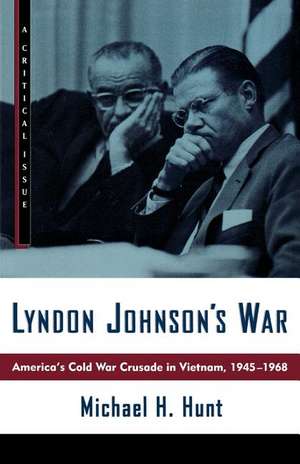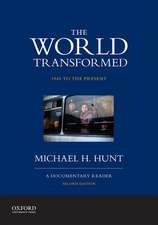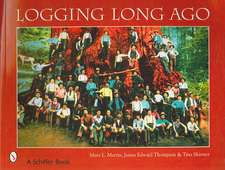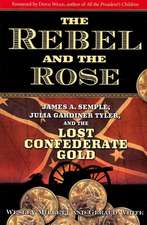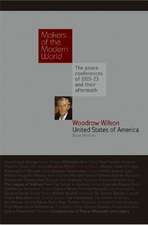Lyndon Johnson's War: America's Cold War Crusade in Vietnam, 1945-1968: Hill and Wang Critical Issues
Autor Michael H. Hunten Limba Engleză Paperback – 31 iul 1997
The Hill and Wang Critical Issues Series: concise, affordable works on pivotal topics in American history, society, and politics.
Using newly available documents from both American and Vietnamese archives, Hunt reinterprets the values, choices, misconceptions, and miscalculations that shaped the long process of American intervention in Southeast Asia, and renders more comprehensible--if no less troubling--the tangled origins of the war.
Using newly available documents from both American and Vietnamese archives, Hunt reinterprets the values, choices, misconceptions, and miscalculations that shaped the long process of American intervention in Southeast Asia, and renders more comprehensible--if no less troubling--the tangled origins of the war.
Preț: 88.21 lei
Nou
Puncte Express: 132
Preț estimativ în valută:
16.89€ • 17.32$ • 14.22£
16.89€ • 17.32$ • 14.22£
Carte disponibilă
Livrare economică 05-19 februarie
Preluare comenzi: 021 569.72.76
Specificații
ISBN-13: 9780809016044
ISBN-10: 0809016044
Pagini: 160
Dimensiuni: 137 x 213 x 13 mm
Greutate: 0.18 kg
Ediția:Reprint
Editura: Farrar, Strauss & Giroux-3pl
Seria Hill and Wang Critical Issues
ISBN-10: 0809016044
Pagini: 160
Dimensiuni: 137 x 213 x 13 mm
Greutate: 0.18 kg
Ediția:Reprint
Editura: Farrar, Strauss & Giroux-3pl
Seria Hill and Wang Critical Issues
Notă biografică
Michael H. Hunt, Everett H. Emerson Professor of History at the University of North Carolina, Chapel Hill, is a leading scholar of U.S.-East Asian relations. Among his many books are Crises in U.S. Foreign Policy: An International History Reader and The Genesis of Chinese Communist Foreign Policy
Textul de pe ultima copertă
The Vietnam War, perhaps the mast controversial war Americans have ever fought, remains a source of pain and perplexity. Why did Lyndon Johnson commit the United States to fight? Why did he fail to act more decisively once he resolved on war? And why didn't he take the American public into his confidence? These questions have troubled historians since the end of the war, but the answers have been buried in inaccessible documents. Now Michael H. Hunt uses newly available sources from both American and Vietnamese archives to reevaluate how and why the war started and then escalated. He examines the ideological, strategic, political, and institutional pressures that in the 1950s propelled the Truman and Eisenhower administrations toward intervention in Indochina; the reasons why Kennedy's and Johnson's policymakers believed that a limited war could be fought there; Johnson's early position on Vietnam and his decision to intensify U.S. involvement in the war; and, finally, the tragic consequences of the Vietnam War both at home and abroad. Throughout, he discusses the values, choices, misconceptions, and miscalculations that shaped the long process of American intervention, thus rendering more comprehensible - if no less troubling - the tangled origins of the Vietnam War.
